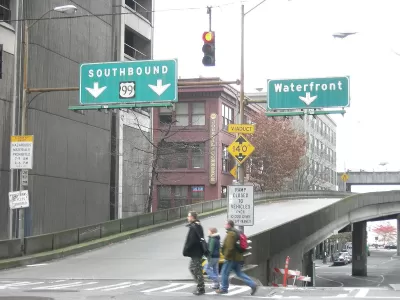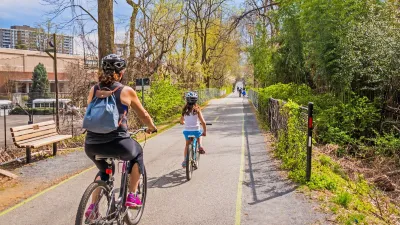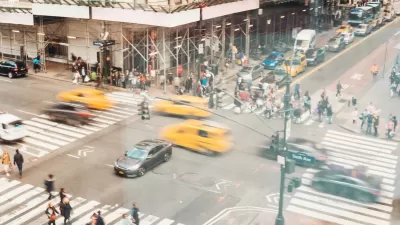Despite a commitment to eliminating traffic deaths by 2030, 2022 is shaping up to be the deadliest year in more than a decade.

Judging by the latest numbers, Seattle’s efforts to reach the Vision Zero goal of eliminating traffic fatalities have not been successful, reports David Kroman in The Seattle Times. “In each of the first five months of the year, the number of deaths and serious injuries exceeded the previous three-year average.” Meanwhile, “At 30 deaths, 2021 was the deadliest year in Seattle since 2006, proving the city to be no exception to the nationwide spike in traffic deaths.” As Kroman notes, “Of the 11 who died so far this year, four were walking, two were biking and five people were either a driver or passenger inside a car. The toll of Seattle’s traffic issues falls disproportionately on bikers and walkers.”
Data shows the burden also falls most heavily on vulnerable groups and low-income communities. “Analysis by city staff shows Black people disproportionately die in traffic crashes and that 27% of 2021’s fatalities were people experiencing homelessness over the previous five years.”
The Seattle Department of Transportation (SDOT) says they are focusing on implementing ‘safe systems design,’ an approach that works to shift blame away from victims and address infrastructural solutions that allow for human error while making it less deadly. “Priorities include making shorter pedestrian crossing, converting more lanes to transit or bike use, broadening corners in intersections to slow vehicle turns and possibly prohibiting turning right on red.”
FULL STORY: Seattle traffic deaths and injuries remain high in 2022

Maui's Vacation Rental Debate Turns Ugly
Verbal attacks, misinformation campaigns and fistfights plague a high-stakes debate to convert thousands of vacation rentals into long-term housing.

Planetizen Federal Action Tracker
A weekly monitor of how Trump’s orders and actions are impacting planners and planning in America.

San Francisco Suspends Traffic Calming Amidst Record Deaths
Citing “a challenging fiscal landscape,” the city will cease the program on the heels of 42 traffic deaths, including 24 pedestrians.

Defunct Pittsburgh Power Plant to Become Residential Tower
A decommissioned steam heat plant will be redeveloped into almost 100 affordable housing units.

Trump Prompts Restructuring of Transportation Research Board in “Unprecedented Overreach”
The TRB has eliminated more than half of its committees including those focused on climate, equity, and cities.

Amtrak Rolls Out New Orleans to Alabama “Mardi Gras” Train
The new service will operate morning and evening departures between Mobile and New Orleans.
Urban Design for Planners 1: Software Tools
This six-course series explores essential urban design concepts using open source software and equips planners with the tools they need to participate fully in the urban design process.
Planning for Universal Design
Learn the tools for implementing Universal Design in planning regulations.
Heyer Gruel & Associates PA
JM Goldson LLC
Custer County Colorado
City of Camden Redevelopment Agency
City of Astoria
Transportation Research & Education Center (TREC) at Portland State University
Jefferson Parish Government
Camden Redevelopment Agency
City of Claremont





























